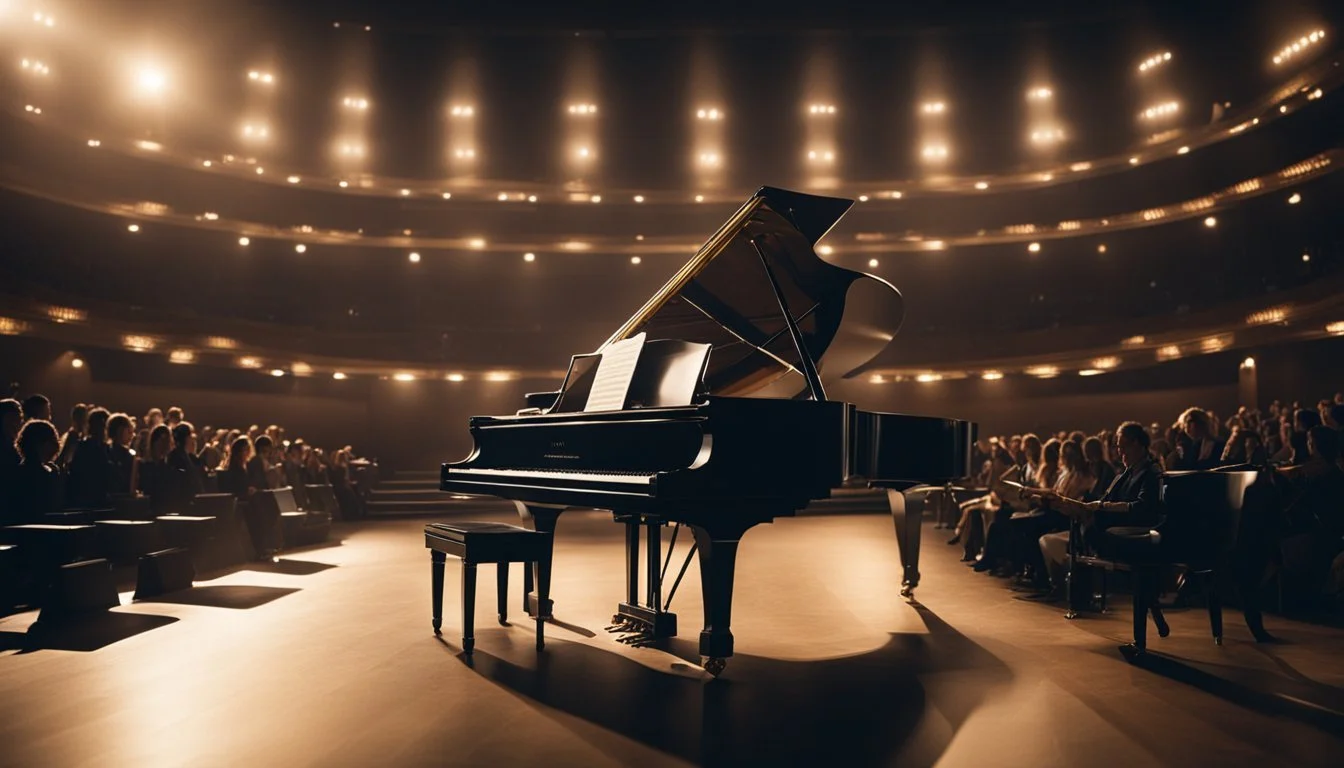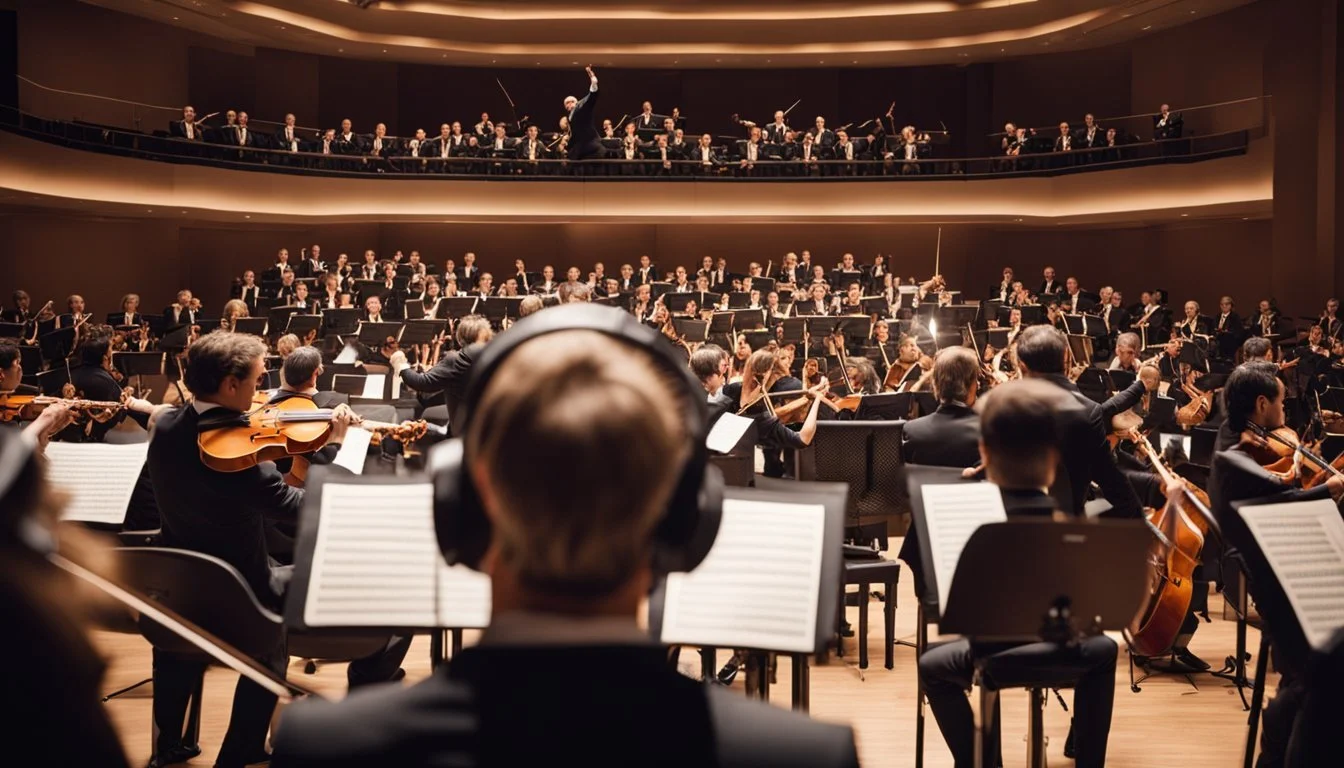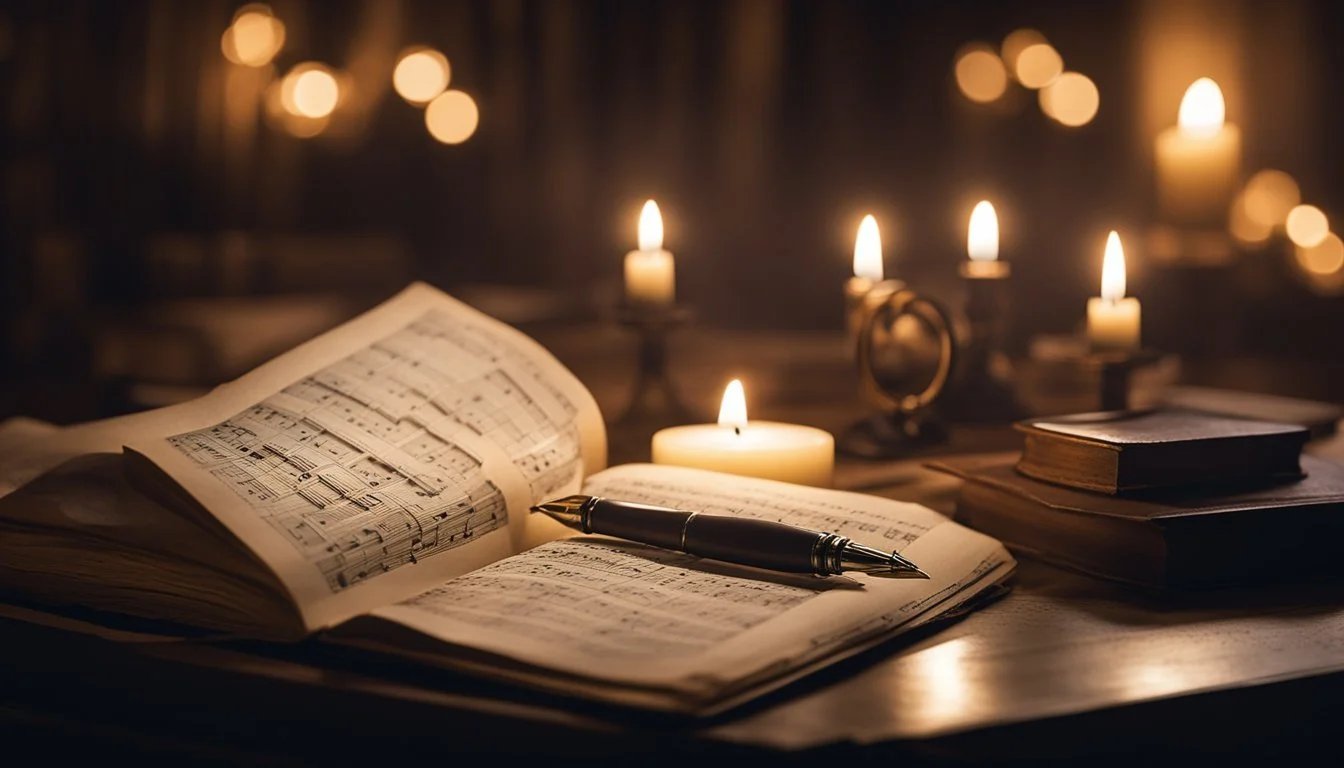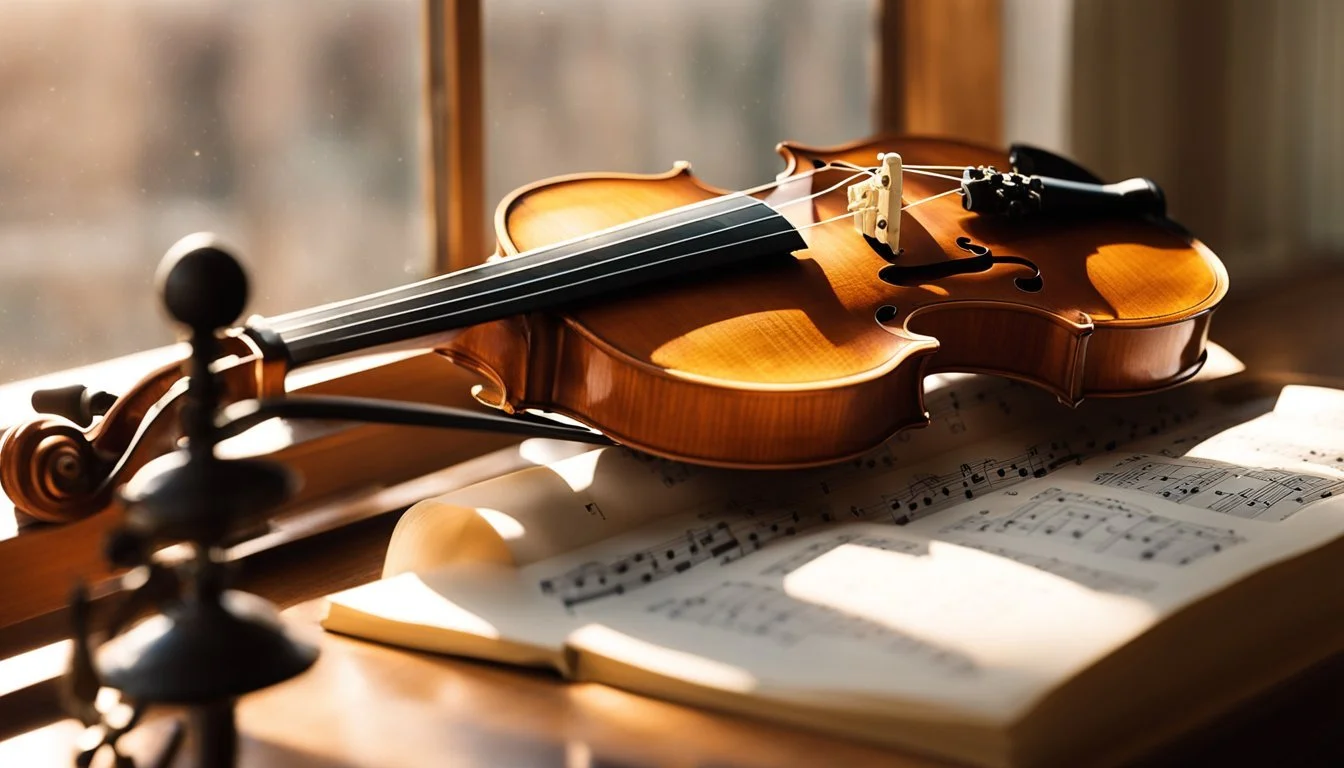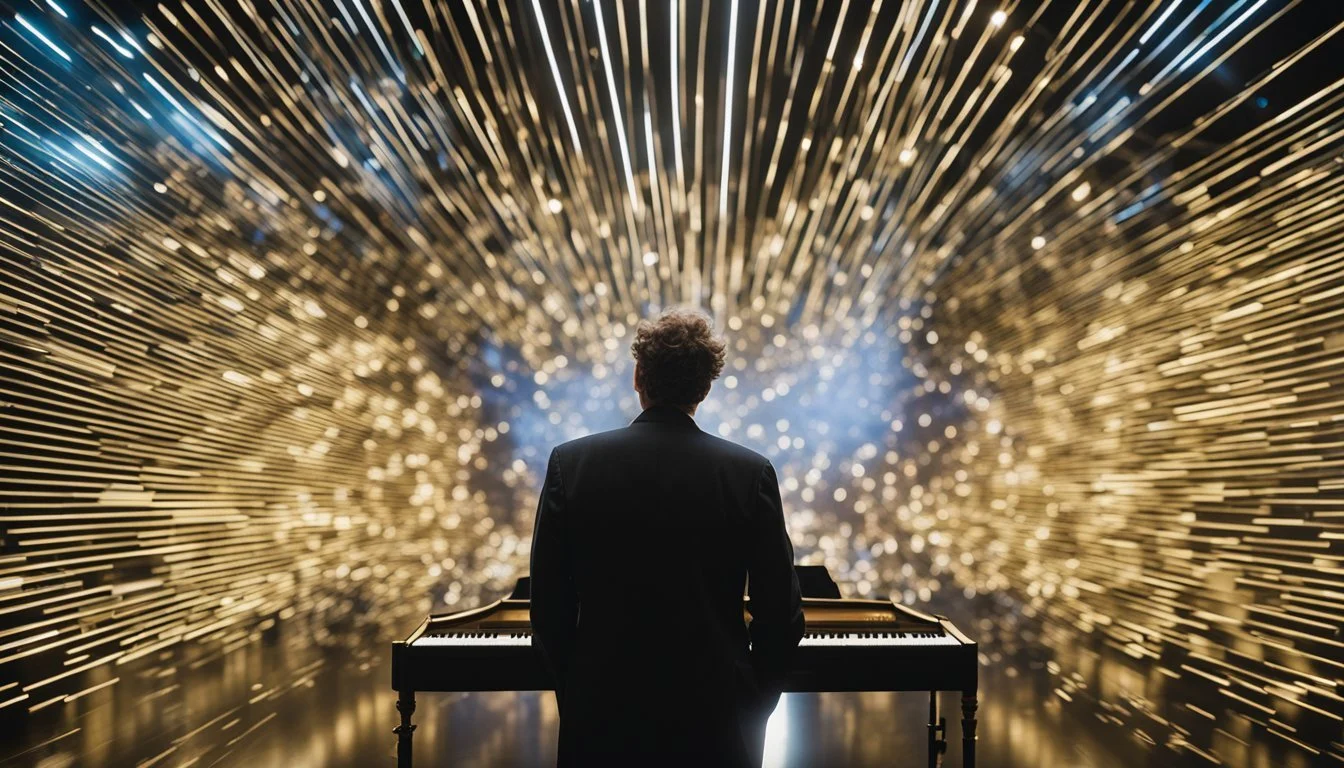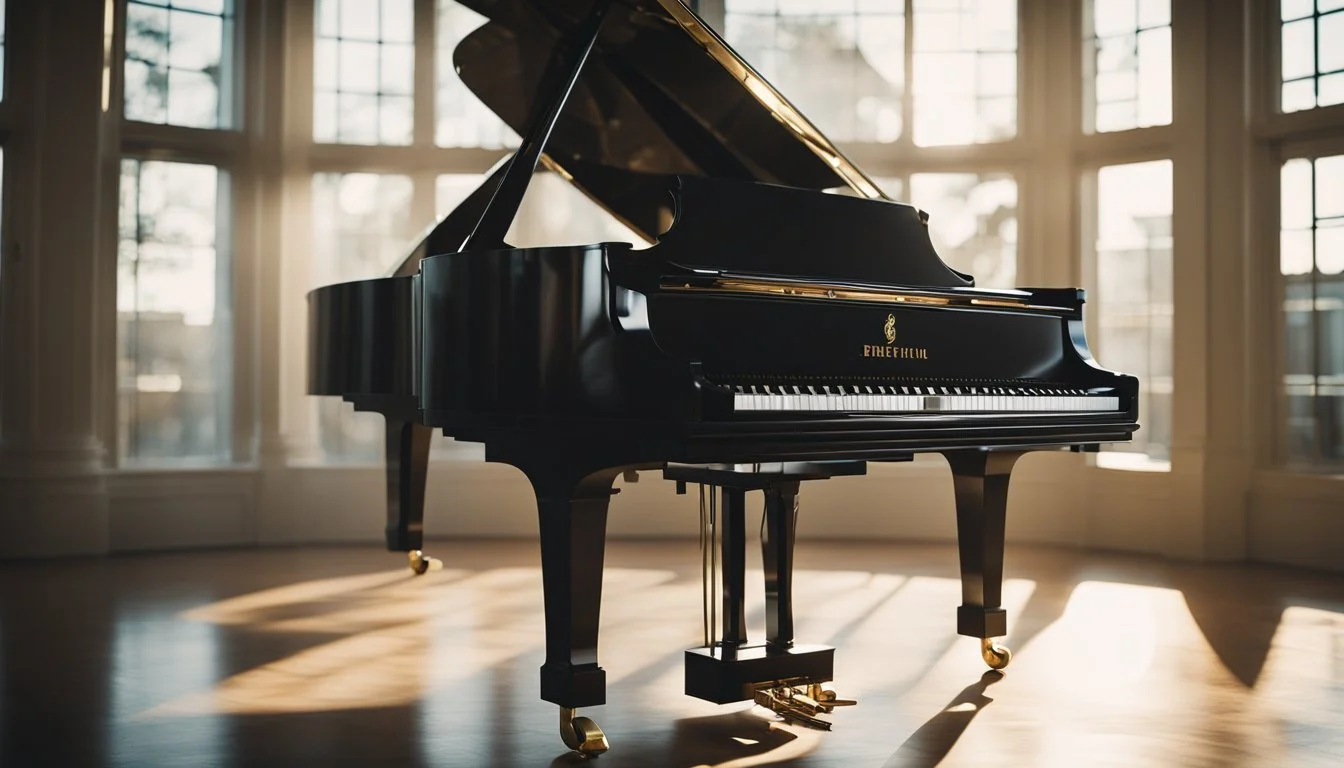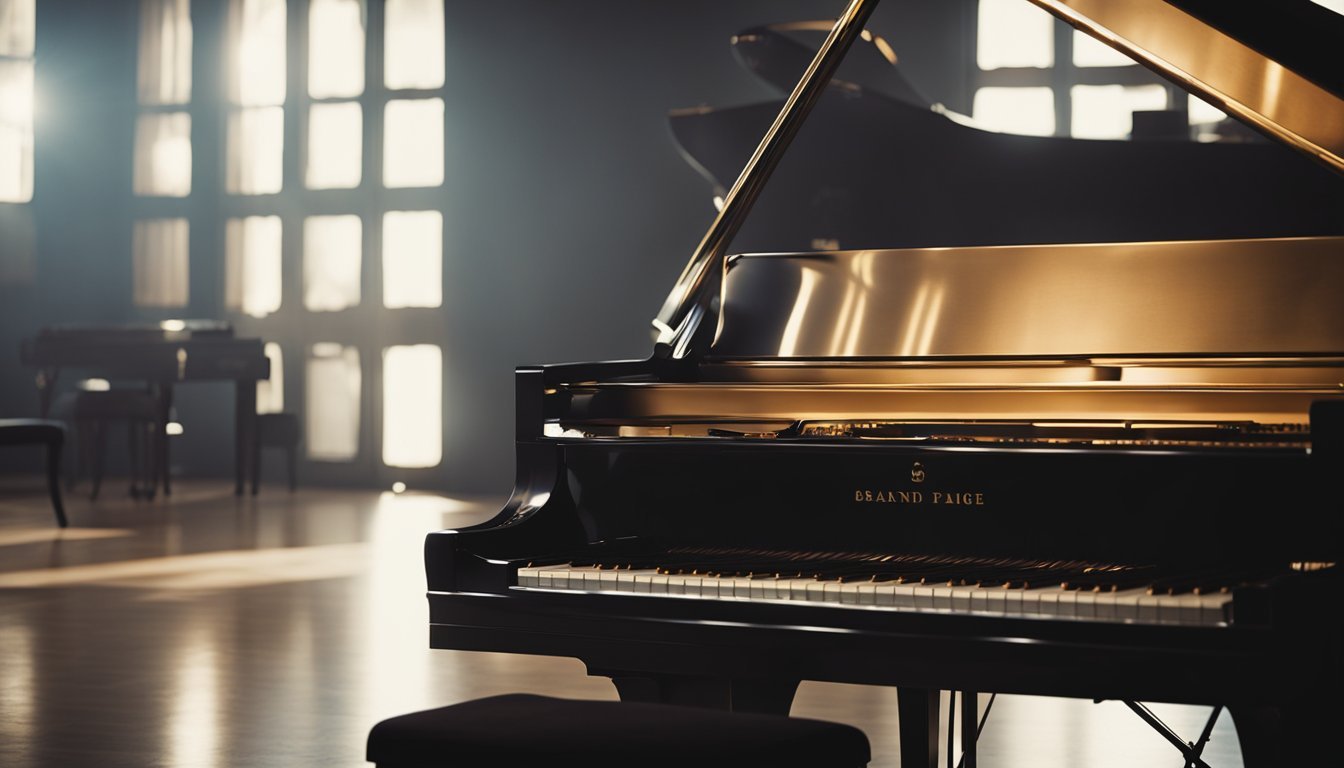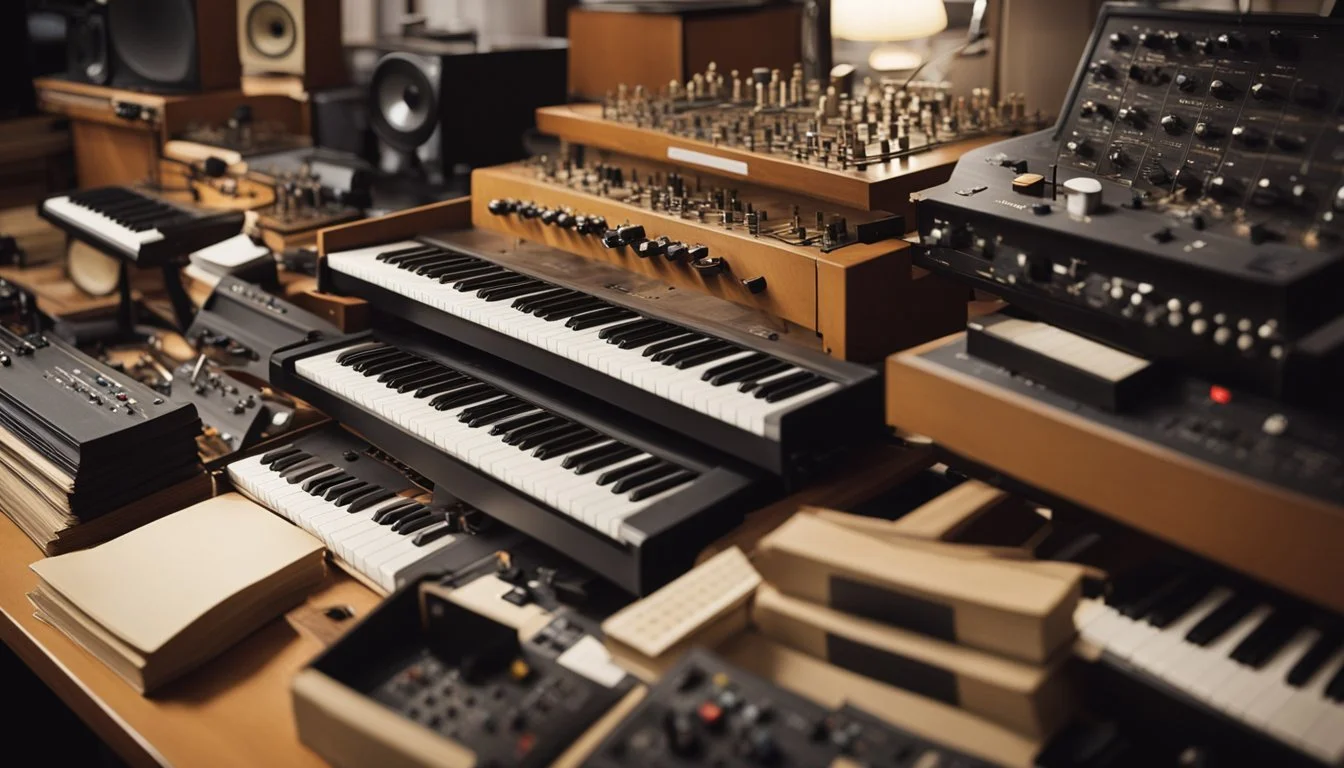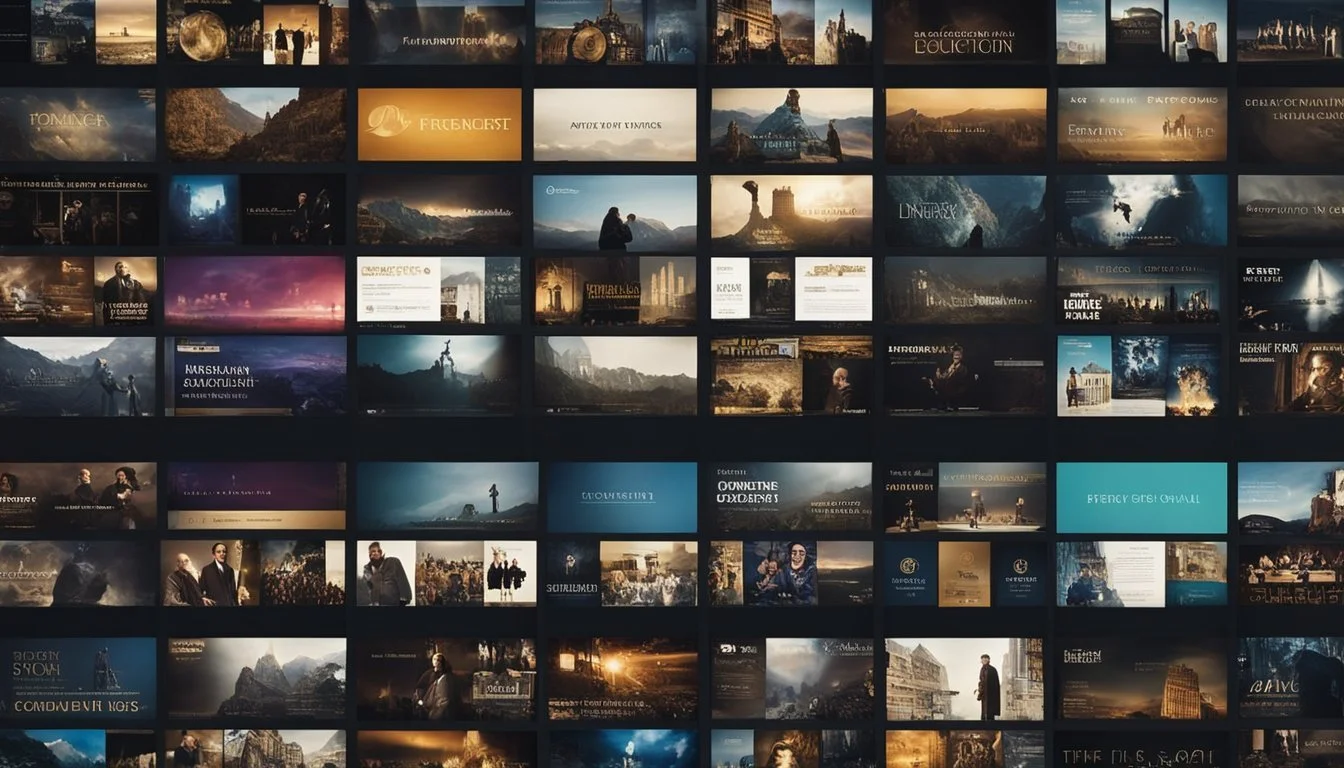Uplifting Documentaries About Classical Music
Exploring Timeless Melodies and Masters
Classical music documentaries offer a window into the lives, processes, and historical contexts of the musicians and composers who have crafted the symphonies, operas, and chamber pieces that continue to resonate through time. These films are not merely biographical; they incorporate analyses of significant works and performances, while also shedding light on the intricate dynamics of the classical music world.
Viewers have the opportunity to see the dedication and passion behind the performers and to understand the composer's intent through various documentaries available on platforms such as Netflix, YouTube, and Amazon Prime. Some documentaries focus on personal rivalries, such as the one between sopranos Maria Callas and Renata Tebaldi, bringing to life the stories behind the music. Others, like those featuring conductor Daniel Barenboim or the enigmatic pianist Glenn Gould, illustrate the profound influence these musicians have had on the interpretation and appreciation of classical pieces.
The spectrum of subjects in these documentaries is vast. Whether it's observing Leonard Bernstein's meticulous process in "Conducting Mahler" or delving into Wolfgang Amadeus Mozart's life in "In Search of Mozart," viewers gain an insightful perspective of what drives these timeless pieces. This genre of documentary also extends to those who have inspired the music, such as the documentary "Yo-Yo Ma Inspired by Bach," showcasing the renowned cellist’s cross-cultural exploration of music.
Each film demystifies the complexities and nuances of classical music, serving as an educational resource that inspires both novices and aficionados alike. Through these documentaries, classical music's enduring legacy is celebrated and preserved for contemporary audiences.
A World Without Beethoven? (2020)
"The World Without Beethoven?" is a contemplative exploration of Ludwig van Beethoven's impact on the music world, conceived around the 250th anniversary of the composer's birth. Through the lens of this documentary, audiences are invited to consider the vast influences Beethoven has had on various musical genres, including rock, jazz, and movie scores.
Narrated by Sarah Willis, the film posits a scenario where Beethoven's genius never touched the world. It muses on the absence of his influence and asks whether the conceptual landscapes of modern music would exist as they do today. The special runs approximately one hour and thirty minutes, offering a substantial dive into Beethoven's impact.
Fusing historical context with contemporary relevance, the documentary underscores the pervasiveness of Beethoven's work. Music experts, alongside vivid reconstructions, offer insights, illustrating the void that would exist in the absence of Beethoven's compositions. The film's inquiry is not just a historical retrospection but a thematic unraveling of music's evolution and the groundbreaking shifts that Beethoven set in motion.
Touch the Sound (2004)
"Touch the Sound" is a 2004 documentary directed by Thomas Riedelsheimer. This film provides an intimate portrayal of Evelyn Glennie, a Scottish classical percussionist who is profoundly deaf.
The documentary delves into Glennie's relationship with sound and music. Despite her deafness, she achieved recognition as a Grammy-winning artist. This remarkable journey shatters the conventional understanding of hearing and listening.
Film Highlights:
Subject: Evelyn Glennie, a trailblazing musician redefining the perception of sound.
Theme: Explores the connections between sound, rhythm, and the body.
Approach: Follows Glennie's global musical explorations.
Through her tactile sense of vibration and deep immersion in the physicality of musical performance, Glennie experiences sound in a unique way that challenges audiences to understand sound beyond mere auditory reception.
Touch the Sound has garnered attention for its thought-provoking content and has been screened at various film festivals, including the Locarno Film Festival and the Edinburgh Film Festival in 2004, ahead of its North American premiere at the Toronto International Film Festival.
The documentary succeeds in bringing the viewer into a world where sound is felt, seen, and experienced in a holistic and multisensory way. It is an invitation to perceive the essence and boundless possibilities of sound through the lens of a percussive virtuoso.
Maestro (2017)
Maestro is a documentary film that spotlights Grammy award-winning conductor Paavo Järvi and a selection of renowned musicians. The film captures the synergy between Järvi and his orchestra as they deliver exhilarating performances in sold-out venues around the globe.
The narrative provides an insider's perspective, affording viewers a rare glimpse behind the scenes of the classical music industry. Maestro traverses various countries, showcasing diverse cultures unified by their love for classical music. It highlights the demanding nature of orchestrating and performing at a world-class level, illuminating the intricate processes that lead to the success of a music tour.
The documentary serves not only as an exploration of Järvi's formidable expertise but also as a celebration of the classical tradition, resonating with both aficionados and newcomers to the genre. Maestro effectively demystifies the often-exclusive classical music realm, making it accessible and engaging to a broad audience. The film’s structure is such that it draws the audience alongside the maestro, offering them a seat at rehearsals, performances, and the less observable aspects of classical music preparation and delivery.
Written By Mrs Bach (2019)
"Written By Mrs Bach: Broken Silence" is a provocative documentary that explores a fascinating question in classical music circles: did Johann Sebastian Bach's second wife, Anna Magdalena Bach, compose some of his most revered works?
The film follows Professor Martin Jarvis, an academic and musician, who has dedicated over three decades to researching this theory. Employing forensic document examination, Jarvis attempts to ascertain the true authorship of certain Bach manuscripts, stirring debate in the process.
Synopsis:
Research: Professor Jarvis's deep investigation into manuscript origins.
Techniques: Forensic science applied to historical documents.
Challenge: Resistance from traditionalist perspectives within the academic community.
The film has sparked discussions on gender roles in classical music history and prompted a re-examination of Anna Magdalena Bach’s potential contributions. It's described as bold and cerebral, suggesting that it not only entertains but also intellectually stimulates its audience.
Through interviews with experts and the compelling narrative led by Jarvis, the documentary invites viewers to question long-held assumptions about classical music authorship.
Rostropovich: The Genius of the Cello (2011)
The documentary, "Rostropovich: The Genius of the Cello," focuses on the life and career of Mstislav Rostropovich, affectionately known as 'Slava.' He was celebrated not just for his exceptional skill as a cellist but also for his significant contributions to music.
Musical Impact:
Rostropovich revolutionized cello playing, expanding the instrument's potential.
The documentary highlights his prowess and the distinctive techniques that earned him the status of one of the greatest cellists.
Influence on Repertoire:
Composers such as Shostakovich and Britten were inspired to write for him, enhancing the cello repertoire.
Educational Aspect:
Insight is provided by music experts, including other cellists who discuss the intricacies of Rostropovich's technique.
Personal Glimpses:
Interviews with family, including his widow and daughters, give a personal touch.
Colleagues and pupils reflect on his influence.
The production is a testament to Rostropovich's profound impact on the world of classical music as a performer, mentor, and personality. Viewing the film offers audiences an informative and engaging experience into the maestro's musical journey and legacy.
Itzhak (2017)
The documentary Itzhak offers an intimate portrayal of Itzhak Perlman, a violinist with a reputation as one of the finest classical musicians. Directed by Alison Chernick, the film covers Perlman's life, work, and religious heritage.
Chernick utilizes a cinéma vérité style to give viewers a sense of closeness to Perlman, focusing more on the person behind the music rather than strictly on his career achievements. Despite some critiques calling for a deeper editorial cut, others have characterized the film as a "joyous" depiction of Perlman's life and spirit. The tone of the documentary is considered "good-humored, earthy, and inspiring," reflecting Perlman’s personality.
Itzhak represents a cinematic embrace of Perlman, while also giving audiences an appreciation of the life and talent of a virtuoso who has transcended his art form. It's a humanizing peek into the world of classical music through the lens of one of its most beloved performers.
Glass: A Portrait of Philip in Twelve Parts (2007)
In 2007, the documentary Glass: A Portrait of Philip in Twelve Parts offered an in-depth look at Philip Glass, one of America's most innovative and influential composers. Directed by Scott Hicks, renowned for his Oscar-nominated work on "Shine," the film presents a multifaceted view of Glass's life and creative process.
Production Overview:
Director: Scott Hicks
Featured: Philip Glass
Year: 2007
Genre: Documentary
The film was structured uniquely in twelve parts, reflecting the composer’s penchant for structure and perhaps a nod to his minimalist style. It shed light on Glass's personal and professional life during an eventful period, highlighting his interactions with notable figures such as Chuck Close, Ravi Shankar, and Martin Scorsese.
In celebrating Glass's 70th birthday, this documentary not only captured his daily routines and conversations but also paid tribute to his influential body of work, which spans across opera, cinema, and even rock 'n' roll. The film earned nominations for Emmy Awards and the AFI Award, acknowledging its cinematic excellence and the depth of portrayal of its subject.
Audiences and critics were drawn by the documentary's intricate composition, which mirrored the complexity of Glass's music. Personal anecdotes and professional achievements were entwined, providing viewers with a profound understanding of the composer's impact on the classical music landscape.
Glass: A Portrait of Philip in Twelve Parts stands out as an engaging exploration of a composer's life, extending beyond traditional biography to become a resonant piece of storytelling in its own right.
Bloody Daughter (2012)
Bloody Daughter is a compelling documentary that offers a unique view into the life of famed pianist Martha Argerich. Directed by Stéphanie Argerich, the film is a family portrait that depicts the intricate dynamics between Martha and her daughters, especially through the lens of her youngest, Stéphanie.
Originally titled Argerich, the documentary juxtaposes personal family interactions with professional achievements in music. It spans a duration of 94 minutes, revealing both harmonious and tension-filled moments that define their relationships.
The documentary includes performances from Martha Argerich, with excerpts of music by celebrated composers such as Chopin, Prokofiev, and Ravel. The film also features a bonus live recording of Frédéric Chopin's Piano Concerto #1, with Martha Argerich performing alongside Sinfonia Varsovia Orchestra, conducted by Jacek Kaspszyk at Warsaw's Philharmonic Hall.
Stéphanie provides insights into growing up with parents who are revered in the classical music world, including her father Stephen Kovacevich. The film is described as a warm and intimate exploration of Martha's role as a mother, musician, and an icon, with the unique perspective of her daughter unveiling the dynamic of a multi-generational family embedded in the world of classical music.
Genius Within: The Inner Life of Glenn Gould (2009)
In 2009, directors Michèle Hozer and Peter Raymont offered an insightful gaze into the life of Glenn Gould with their documentary Genius Within: The Inner Life of Glenn Gould. This film provides an in-depth exploration of Gould's influence as an enigmatic pianist and sheds light on his personal life beyond his public persona.
Critically acclaimed, the documentary received praise for its nuanced portrayal of the artist. The filmmakers endeavor was not merely to focus on Gould's eccentricities but to capture the essence of his genius.
John Cage From Zero (1995)
"John Cage From Zero" is a 1995 documentary that offers insight into the theories and music of John Cage, a highly influential American composer and artist known for his avant-garde and unconventional approach to classical music. Directed by Frank Scheffer and Andrew Culver, the film comprises a series of four short films that explore Cage's philosophies and his impact on the world of music and art.
Cage's experimental approach to music, including his use of indeterminacy, electroacoustic sounds, and non-standard use of musical instruments, makes the documentary a significant exploration of the boundaries of classical music and performance. Additionally, 19 QUESTIONS, an element within the documentary, presents Cage responding to various inquiries that shed light on his creative process and bold artistic vision.
Viewers of "John Cage From Zero" can expect to gain a deeper understanding of the avant-garde movement as it pertains to classical music. The documentary emphasizes the collaborative nature of Scheffer and Culver's direction, presenting an intricate look at John Cage's work through diverse visual and auditory experiences.
The production does not go uncredited; it highlights the adept technical skills of Bert Flantua and Eddy Decloe in the sound department, which are crucial for delivering the documentary's aural intricacies that are so central to Cage's compositions.
For those interested in diving into the realms of contemporary classical music and its evolution, "John Cage From Zero" offers a compelling portrayal of John Cage's artistic journey, revealing how his ideas continue to resonate within the classical music landscape.
Conclusion
Exploring classical music through documentaries offers fans a deep dive into the passions, challenges, and achievements of remarkable composers and performers. The genre's rich history and evolving nature is portrayed in a variety of films that cater to aficionados and newcomers alike. Notable documentaries include:
Maestro, revealing the dedication of conductor Paavo Järvi and renowned musicians during global performances.
From the Top: Live from Carnegie Hall, showcasing young classical musicians.
The Magic of Music and Fantasia 2000, for their artistic interpretations and animations paired with classical compositions.
Yo-Yo Ma: Inspired by Bach, where the virtuoso cellist explores connections between Bach's compositions and the wider world.
Documentary coverage ranges from detailed biographical studies to innovative performance chronicles. This ensures a comprehensive understanding of classical music's legacy and its contemporary relevance. Each documentary serves as a reminder of the enduring power and beauty of classical music, and the vital role it continues to play in the global cultural landscape.
#musical background #family life #complete performance #goldberg variations #ken russell #isaac stern #christopher nupen

